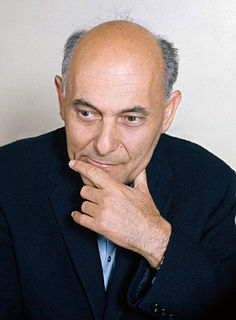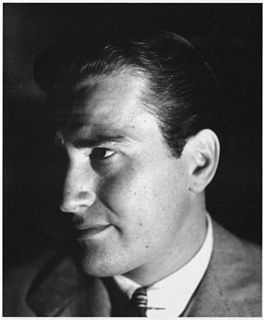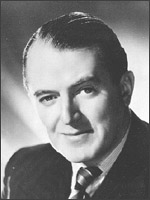Цитата Луи Армстронга
Очень немногие из тех, чьи имена стали великими на начальном этапе развития джаза и свинга, вообще имели музыкальное образование. Они были прирожденными музыкантами: чувствовали свою музыку и играли на слух и память. Так было и с великой Dixieland Five.
Связанные цитаты
Я вырос во время Великой депрессии, и джазовые исполнители и музыканты диксиленда были в центре нашего общения и удовольствия. Они не были мимолетными фантазиями. Это то, что есть и будет слушать снова и снова. Я с почтением отношусь к некоторым из тех старых джазовых звезд, как Сидни Беше и Луи Армстронг.
Я всегда любил джазовую музыку, и когда я был подростком, выросшим в Нью-Йорке, а затем, когда стал взрослым, у меня остались прекрасные воспоминания о джаз-клубах, которые располагались на 52-й улице. Я до сих пор посещаю столько джазовых шоу, сколько могу, когда бываю в Нью-Йорке. И когда я выступаю, со мной рядом мой джазовый квартет. Джазовые музыканты делают вещи спонтанными и очень «живыми», как мне нравится выступать.
Я посетил Нью-Йорк в 63-м, намереваясь переехать туда, но заметил, что все, что я ценил в джазе, отбрасывается. Я столкнулся с фри-джазом «на обед», и представление о груве было старомодным. Повсюду в Соединенных Штатах я видел, как джаз становится линейным, миром валторниста. Это заставило меня понять, что мы не были джазовыми музыкантами; мы были территориальными музыкантами, влюбленными во все формы афроамериканской музыки. Все музыканты, которых я любил, были территориальными музыкантами, глубоко увлеченными блюзом и госпелом, а также джазом.
Ранняя американская музыка и ранняя фолк-музыка, до того, как пластинки стали популярными, до того, как появились поп-звезды и до того, как появились площадки для представления музыки, где люди покупали билеты, люди играли музыку в обществе, и это было гораздо больше частью ткани повседневная жизнь. Я называю эту музыку «основной музыкой».
Для меня давайте сохраним джаз как народную музыку. Давайте не будем делать джаз классической музыкой. Давайте сохраним ее как уличную музыку, как музыку для повседневной жизни людей. Давайте посмотрим, как джазовые музыканты продолжают использовать материалы, инструменты, дух реального времени, в котором они живут, как то, вокруг чего они строят свою жизнь как музыканты.
Были две вещи, которые я обнаружил, когда гастролировал со Snoop. Во-первых, вся группа состояла из джазовых музыкантов. Во-вторых, привить мне уважение к другим стилям музыки. С тех пор всякий раз, когда я играл новую музыку, я подходил к ней с такой же непредубежденностью. Что они пытаются сделать? Что они слышат? Как они видят музыку?
Музыка буквально витала в воздухе в то время, в Вене 1780 года. Все играли музыку, классическую музыку. Музыкантов было на самом деле так много, что в многоквартирных домах людям приходилось составлять расписание - ты репетируешь в 5 вечера, я буду репетировать в 6 вечера. Чтобы музыка не мешала друг другу.
Я родился в Филадельфии, штат Пенсильвания, и я выходец из семьи, которая была поклонником джаза, а также очень интересовалась прогрессивной политикой. И поэтому у меня дома было много художников и музыкантов. Много латиноамериканской музыки, фолка, джаза, блюза и блюграсса. Художники и тому подобное.
Я был соредактором журнала The Jazz Review, который был новаторским журналом, потому что это был единственный журнал, тогда или сейчас, в котором все статьи были написаны музыкантами, джазменами. В течение многих лет они работали в соответствии со стереотипом, что они не очень красноречивы, за исключением тех случаев, когда они берут в руки валторну.
Когда я приехал в Нью-Йорк, в Бруклин, я встретил Элвина Эйли, Стэнли Крауча и Августа Уилсона. Они всегда помещали вещи в философский контекст. Все великие джазовые музыканты тоже. В том, что они говорили о музыке, всегда был подконтекст, даже если они были очень простыми и приземленными. Поэтому я начал развивать, в дополнение к своей силе и способности просто слышать, способ размещения себя во времени.
Один из наиболее очевидных аспектов музыки для людей, знакомых с джазом, это: как он ощущается в свинге? Это очень тонкие вещи, которые джазовые музыканты ценят по-особому. Я ценю то, как размахивает Томми Флэнаган, как размахивает Бэрри Харрис, отличный пульс у Хэнка Джонса и Билла Эванса — в конце концов, все они разные.




































